If the poets of the first world war probably enjoy a higher profile now than they have done at any time in the last 100 years, it has not been a smooth passage. When Wilfred Owen was killed in the last week of the fighting he was still virtually unknown, and even 25 years later in the middle of another war, when the ludicrous Robert Nichols — the man Edmund Gosse had once seen as a new Keats and Shelley combined — brought out his anthology of first world war poetry, there was still room for only four poems by Owen and none at all by Isaac Rosenberg, Edward Thomas or Ivor Gurney.
I don’t suppose there are many readers now who would argue with the prominence given by Max Egremont to these four poets, but it is worth remembering that there is nothing either fixed or inevitable in the literary canon that lies behind any such collection as this. Nichols might not be the best guide to anything or anyone except himself (his favourite music, he told Eddie Marsh, was ‘the sound of my own voice’), but if it is easy enough to ignore a disappointed old poseur one only has to glance through the index to 20 years of the Cambridge literary journal Scrutiny — nothing on ‘Little Wilfred’, nothing on Sassoon, nothing on Blunden, nothing on Graves as a poet, only a small pat on the head for Gurney as a composer — to get a salutary reminder that with the exception of Rosenberg and, to a lesser extent, Thomas, those poets that now seem the most distinctive and important voices to emerge from the war did not necessarily seem so to their own generation.
This is not simply another anthology of the ‘best’ poetry of the Great War, though, but an attempt to tell the story of the war through its poets and explore their development through the impact of the conflict on their writing. Egremont takes 11 poets — all soldiers at one time or another — and arranges their work in chronological order, interleaving each selection of verse with a long and assured narrative chapter that places their work firmly within the wider historical, literary, military and political contexts from which it emerged.
Any such selection is going to leave its gaps, of course — you can suddenly find yourself looking for Kipling, for instance, or Hardy, or Ford Madox Ford — but there is no shortage of war anthologies and the advantages outweigh any minor frustration. It is pretty well impossible now to imagine the literary criteria that could turn a Robert Nichols or a Julian Grenfell into serious poets, but set them within the context of the war and popular excitement in the way that Egremont does here — it is estimated that a million war poems were written in Germany in 1914 alone — and verses like Grenfell’s ‘Into Battle’ or Nichols’s ‘Thanksgiving’ have every bit as much right to their place here as Sassoon’s satirical squibs or the startling late flowering of Owen’s talent.
Some Desperate Glory carries a punch, too, because while there can be nothing really new in the story that emerges — the literary friendships and connections, the ubiquitous presence of Eddie Marsh, the webs of patronage, the shell-shocked invalids of Craiglockhart, the postwar history are all familiar enough — both his choices and the strict chronology that he imposes on them make certain things strike home with a new freshness.
There is a natural tendency to see the war’s poetry in terms of a lurching progression from the hysteria of 1914 to the disillusion of 1917, and yet if this book underlines one thing it is that the intensely emotional and physical sense of ‘England’ that now strikes such an unfashionably patriotic note in Brooke’s sonnets was, for the poets represented here, only deepened and broadened by the experience of war.
It is never a bad thing to be reminded that none of these poets was a pacifist — like Sassoon, the gentle Edmund Blunden won an MC for bravery; Wilfred Owen MC could boast to his mother that he had ‘fought like an angel’; ‘Make the name of poet terrible in just war,’ wrote that most unsoldierly of soldiers, Ivor Gurney; and even Isaac Rosenberg, probably the least likely soldier since Coleridge, opened himself as a poet to the full experience of the trenches — but this is something slightly different.
On the face of it no two poems could seem farther apart than Brooke’s ‘The Soldier’ and Sassoon’s ‘Menin Gate’, but it was this sense of an endangered England — or the ‘England’ of his imagination, at least, the England he believed he had gone to war for — that fuelled Sassoon’s anger and sense of betrayal just as surely as it turned Edward Thomas into a poet or gave Ivor Gurney his voice. Gurney wrote in ‘I saw England — July Night’:
Home of Twelfth Night – Edward Thomas by Arras fallen,
Borrow and Hardy, Sussex tales out of Roman Heights callen.
No madrigals or field-songs to my all reverent whim;
Till I got back I was dumb.
It is this England — the Georgian England of Gurney’s ‘lovely chatter of Buck’s voices’, the England of Fountains Abbey (‘Almost worth dying for!’ Owen told his mother), of Edward Thomas’s murdered badger (‘That most ancient Briton of English beasts’) — that runs like a thread through this collection. It reflects a feeling that has nothing to do with vulgar triumphalism, or the spirit of 1914 that found in Brooke its most eloquent voice and in Nichols his natural successor. There is nothing narrow, no hatred of the enemy in Charles Sorley’s poetry. ‘I hate not Germans, nor grow hot with love of Englishmen,’ Thomas could write,
But with best and meanest Englishmen
I am one in crying, God save England, lest
We lose what never slaves and cattle blessed.
The ages made her that made us from dust:
She is all we know and live by, and we trust
She is good and must endure, loving her so:
And as we love ourselves we hate her foe.
Not a formula that would contain an Isaac Rosenberg, but then any that does is going to be a lie. He is — as ever — the exception here that proves the rule, the outsider’s voice that underlines the essential ‘Englishness’ of the great body of war poetry. And if his presence here also exposes its limitations — coming across Rosenberg in a collection of this sort is rather like coming across a late Turner in an exhibition of English topographical watercolours — then, as Some Desperate Glory movingly shows, that does not much matter either.
Turn to the poems at the end of 1916, and you suddenly realise that the 21-year-old Sorley is missing. Move on another year, and Thomas is gone. Another 12 months and Rosenberg is dead, ‘Aftermath’ and there is no Owen. Difficult, in the face of that, to preserve much in the way of critical detachment.
Got something to add? Join the discussion and comment below.
Get 10 issues for just $10
Subscribe to The Spectator Australia today for the next 10 magazine issues, plus full online access, for just $10.
Available from the Spectator Bookshop, £16. Tel: 08430 600033. David Crane is the author of Empires of the Dead: How One Man’s Vision Led to the Creation of WWI’s War Graves.
You might disagree with half of it, but you’ll enjoy reading all of it. Try your first month for free, then just $2 a week for the remainder of your first year.

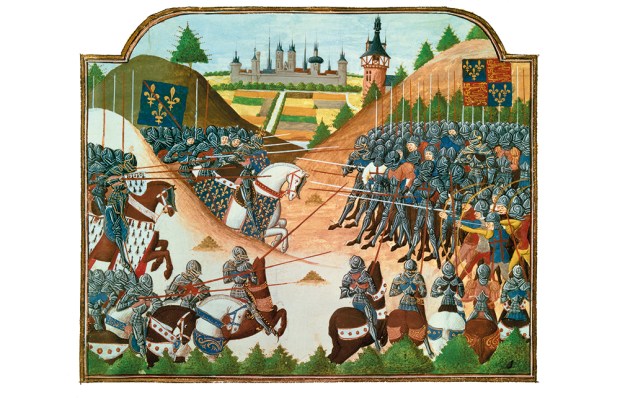
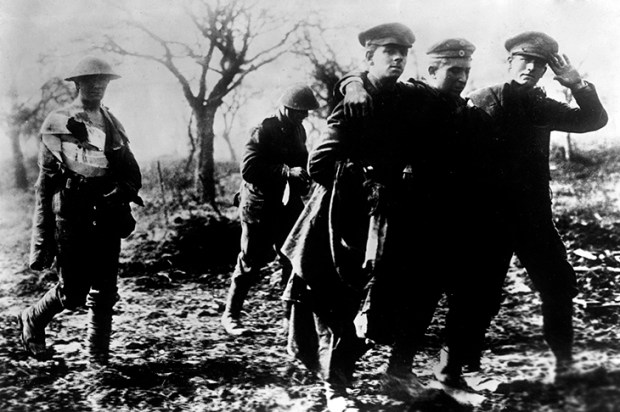
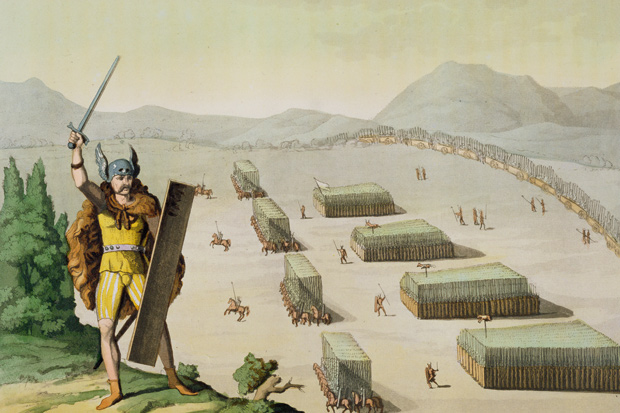
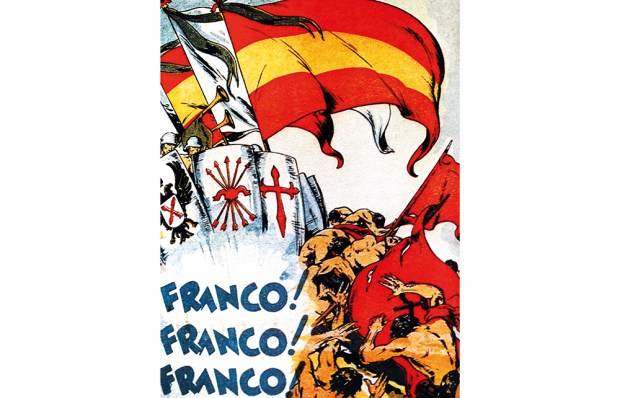
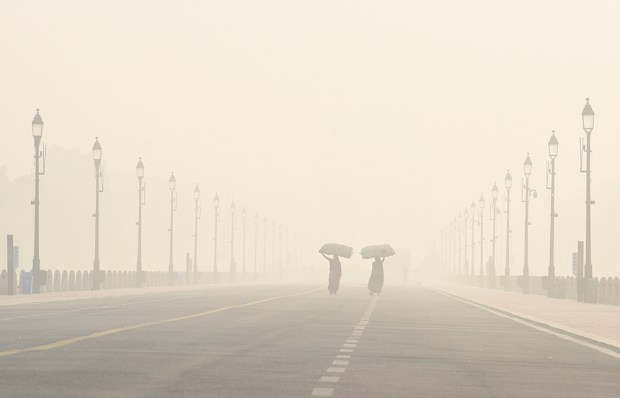
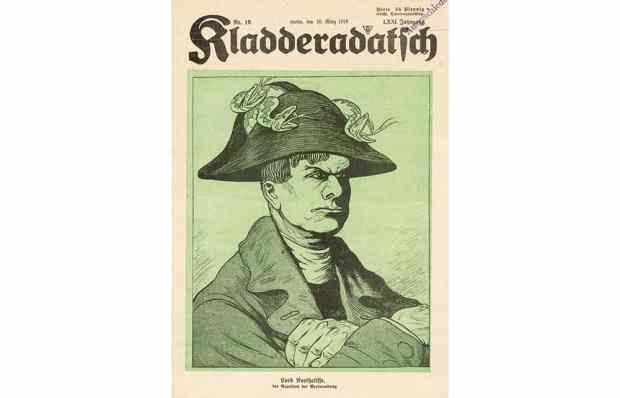






Comments
Don't miss out
Join the conversation with other Spectator Australia readers. Subscribe to leave a comment.
SUBSCRIBEAlready a subscriber? Log in